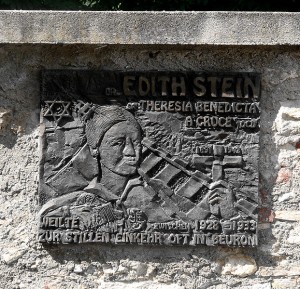 The lives of women have been so severely impacted by the dark side of contemporary culture that it’s hard to know where to begin to dig out of the lies. As with a ball of knotted twine, one needs to see the threads distinctly in order to separate and untangle them. Likewise, we need to separate the tangle of lies undermining authentic femininity, and to reorient ourselves in the secure path of God’s truth.
The lives of women have been so severely impacted by the dark side of contemporary culture that it’s hard to know where to begin to dig out of the lies. As with a ball of knotted twine, one needs to see the threads distinctly in order to separate and untangle them. Likewise, we need to separate the tangle of lies undermining authentic femininity, and to reorient ourselves in the secure path of God’s truth.
We begin with the end in mind: we were created to know and love our Creator. We may discover him in various ways as we grow and learn about the world and ourselves, and yet we cannot fully grasp the magnificence of the Divine Embrace that awaits us. We were created for this pilgrimage of faith that will ultimately deposit us at heaven’s door, and we depend on the Church to guide and protect us along the way. Intrinsic to that pilgrimage is our femininity (or for men, masculinity) which is the prism through which we love. Unlike hair color, height, or skin tone, our sexuality is no accident, but rather it is itself a fundamental attribute that bears its own transcendent significance.
One misunderstanding of even the earliest feminists was that motherhood was a ball and chain that held women back from their full potential. How could they get properly educated and integrated into the workplace if they were tied down by pregnancy after pregnancy? How could they bring their gifts to the world if they were home cooking, cleaning, and caring for children?
In order to respond to this, we have to meet feminists halfway and endorse the good in their premise. Women do need to be educated, and for that reason the Church has always supported schools for girls—even when other cultures and religious traditions discouraged the idea. Saint Edith Stein (philosopher and educator, 1891-1942) elaborated on how the education of girls should take into account their nature—the realities of the feminine soul. Since the physical and psychic makeup of women is to live in creative collaboration with men, to receive the human person in love, and to nurture life in its various stages, their education should take that into consideration.
Unfortunately, most feminists would radically disagree, believing that motherhood is strictly a choice—and one that undermines other options! They go so far as to describe motherhood as a social construct that needs to be deconstructed if women are to “succeed.” Thus, most educational institutions in the West have conformed to the Enlightenment ideal that sees schools as channels of an encyclopedic volume of that information which will be useful in a material world.
Dr. Stein disagreed vehemently, insisting that the education of each girl encompass a three-fold goal: “the development of her humanity, her womanhood, and her individuality.”[i] Essential to her humanity is her fundamental equality with men; essential to her womanhood is the richness of spiritual and physical motherhood (whether or not she is called to marriage and child-bearing); and essential to her individuality is her particular vocation, her gifts, and her overall disposition. None of these can be ignored if she is to develop in a healthy—fully human—way.
Does our present educational system take these things into account—even our Catholic school system? Is there a way that we can improve on the current methodologies so that the truth about femininity is revealed to our young people? If we cannot agree with this assessment, then we have allowed a fundamental lie about the vocation of women to enter the very heart of our formation process.
Mrs. Kineke is a wife and mother of five who lives in Rhode Island. She can be found online at feminine-genius.com. This is the first in an ongoing series on how feminism has undermined our culture.



